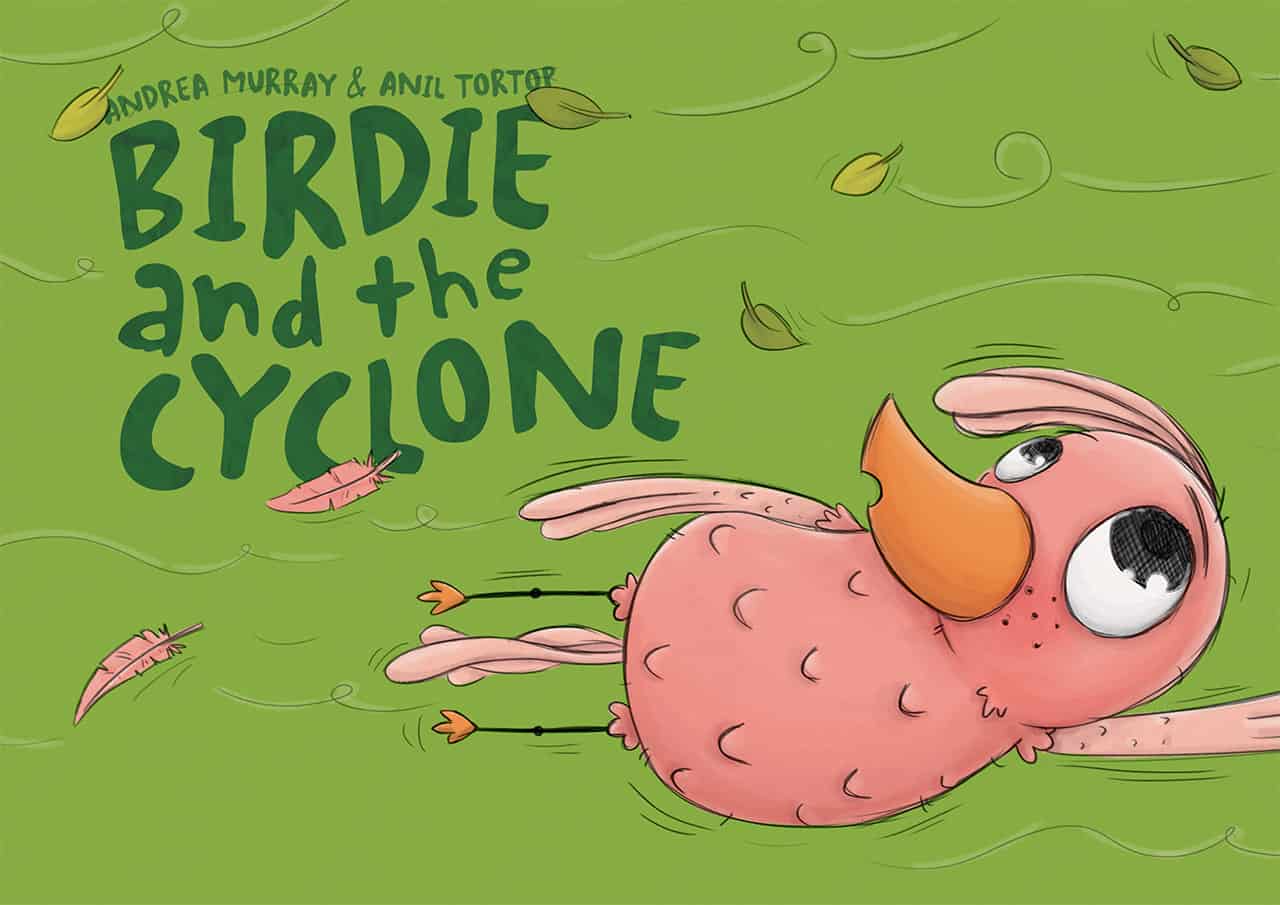Something for the kids
Birdie and the Cyclone is a storybook to help young children and their families cope with cyclones.
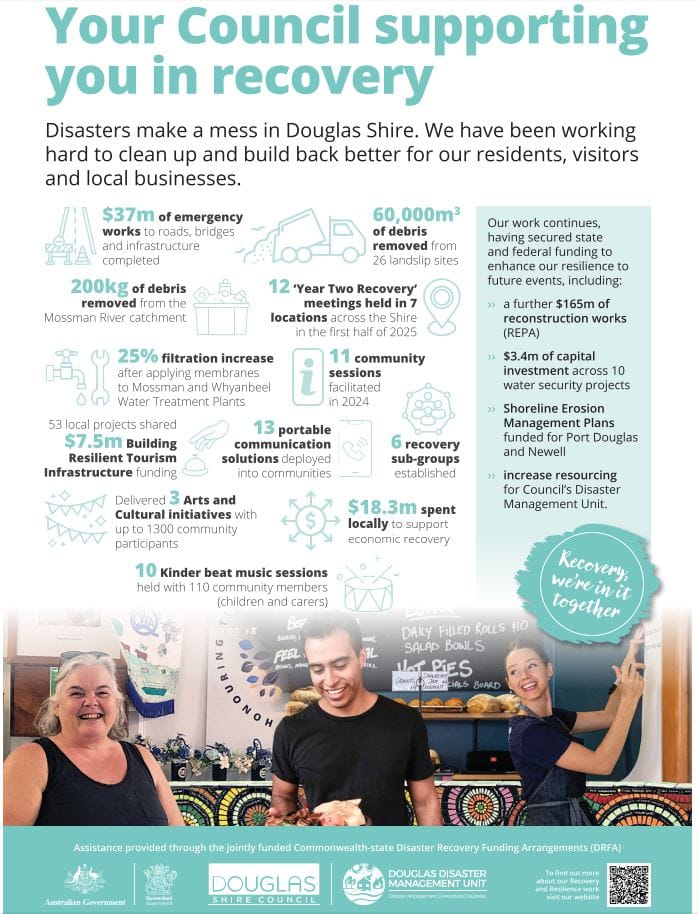
Weather Education Videos
Tropical weather expert Chris Nitso from weather IQ explains the rainfall event following TC Jasper and how to look out for future extreme weather events in these two part videos.
Past Events
Recovery & Resilience Meetings
Between 23 – 27 June 2025, Douglas Shire Council facilitated a series of community engagement sessions across Mossman, Wangetti, Degarra, Diwan, Daintree Village and Wonga. These sessions aimed to gather feedback on disaster recovery progress following Tropical Cyclone (TC) Jasper, strengthen preparedness, and build resilience.
The Disaster Management Unit gathered feedback and captured community sentiment by conducting surveys into community members’ experiences during the last wet season, their feelings of preparedness, recovery and resilience and feedback on the Douglas Disaster Dashboard. These surveys gave community members who were unable to attend a session in person the opportunity to share their thoughts.
We thank everyone who took the time to share their experience. Recovery is a journey, and we’re in it together.
Some common themes and key issues emerged across the sessions and surveys:
- A desire for clearer, more consistent communication before, during and after disasters.
- Questions about infrastructure repairs, connectivity and recovery delays.
- Feelings of anxiety and stress when it rains or as another wet season approaches.
- A strong sense of community pride and resilience – even as recovery continues.
- Tangible updates on the progress of Council to prepare for future events and projects
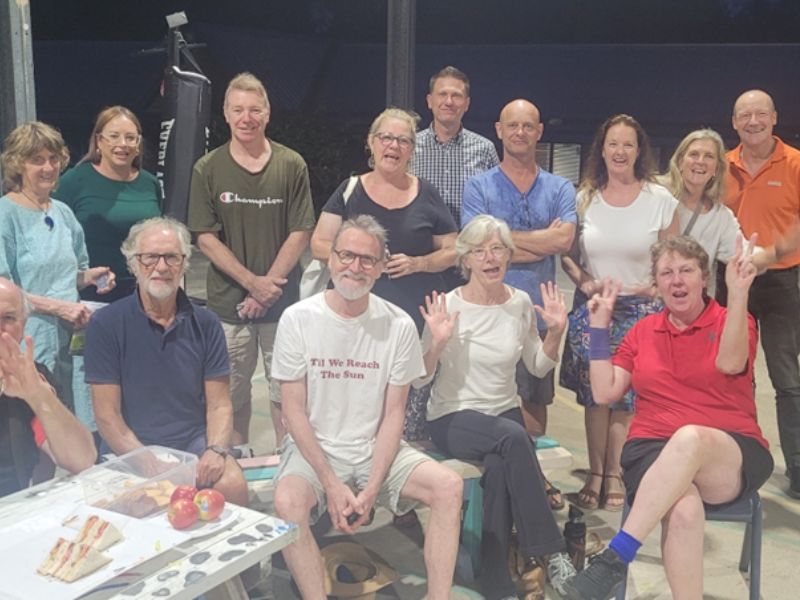
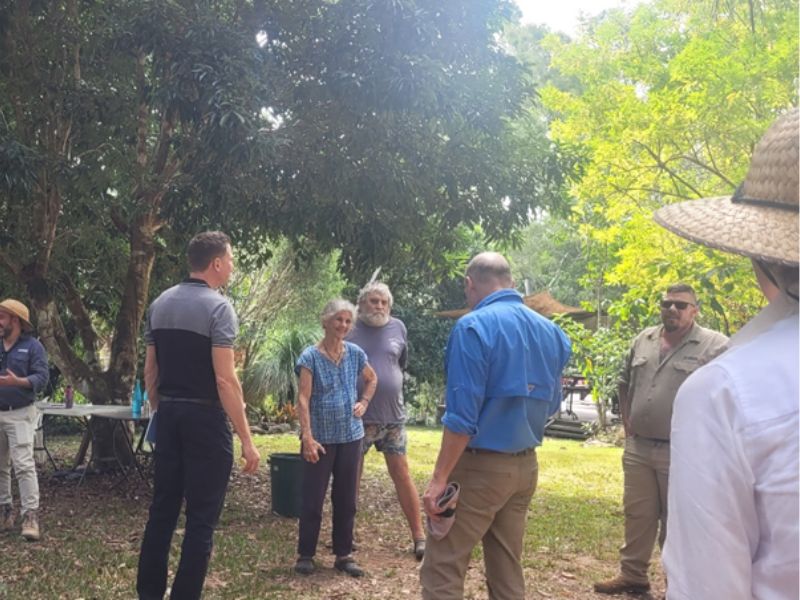
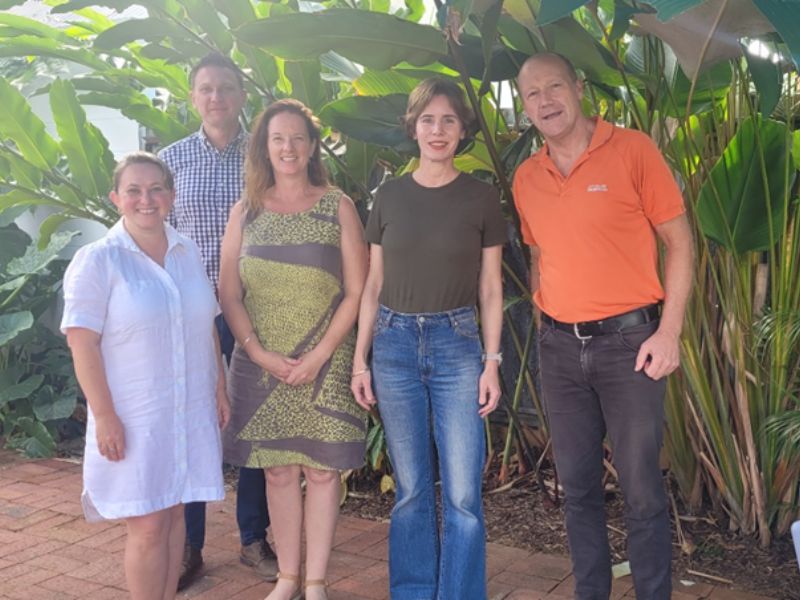
Follow up from Community Meetings
Community members shared some questions with Douglas Shire Council staff during the community meetings and through surveys. Council followed up with internal departments and external agencies and was able to provide the following updates:
Water Tank Installations
Enquiries were raised by some residents about being installing slimline poly water tanks for water security.
- Council clarified that water tanks require building approval from private certifiers under the National Construction Code (Class 10b structure. Boundary setback requirements exist for amenity and sight lines, such as keeping the tank out of the 6m frontage setback of residential lots. This is standard across the State and other states
- Residents across the Shire have been installing water tanks at the rear of their properties and Council encourages these initiatives to be prepared.
Telstra
- The Wangetti community raised questions around mobile connectivity which Telstra have noted; enhancement strategies are currently being explored, and Council will be updated on further developments.
- Wonga’s exchange has been repaired, resolving previous connectivity issues. As Daintree Village relies on the Wonga site, the recent upgrades are expected to improve connectivity in Daintree as well.
Ergon
Questions were raised about Ergon’s pre-deployment and network restoration strategy during TC Jasper, as a pre-deployed generator at Wangetti was not operational during the event. Ergon stated the expectation was for damage on the Craiglie sub-station line, however Wangetti sustained damage instead. The network had to be repaired before power could be restored (mains or generator) for public safety. Port Douglas network repairs were prioritised due to an aged care facility, water and sewerage services on its network
Starlink
The Disaster Management Unit currently maintains three portable Starlink units.
- One unit is reserved for Disaster Management Unit operational use.
- Two units are available for deployment or pre-deployment to communities at risk of communications disruptions.
The deployment of these units provides an essential contingency capability. In the event that mobile communications are lost, Starlink allows isolated communities to re-establish critical connectivity with the outside world. This function directly supports community safety, situational awareness, and coordination of response efforts.
During the 2024–2025 wet season, one Starlink unit was pre-positioned in Degarra. This proved highly effective, ensuring the community had reliable communications access throughout periods of isolation and network disruption.
The Disaster Management Unit is in the process of developing educational materials to ensure that community members are aware of the resources that are available in future events.
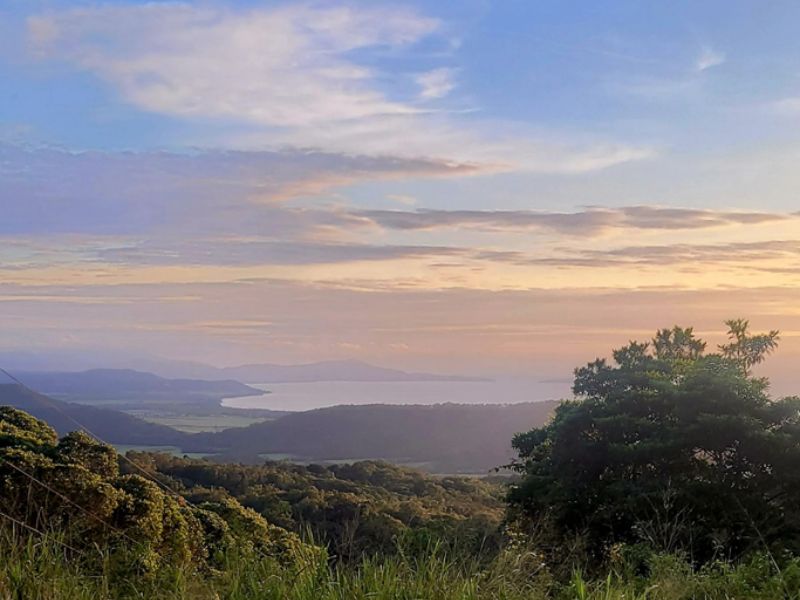
Lessons in Disaster Comes to Port Douglas
In August this year, Gender and Disaster Australia (GADAus) brought its flagship Lessons in Disaster training to the Douglas Shire, held at the Port Douglas Community Hall over Wednesday 20 and Thursday 21 August.
Thanks to the support of Douglas Shire Council and federal funding under the National Plan to End Violence Against Women and Children, the training was delivered free to participants.
What Happened
Participants from local government, community organisations, emergency services, health and social services, and disaster recovery groups joined the full-day training. The program followed the standard four-session format:
- Gender & Disaster — the Evidence
- The Drivers of Family Violence in Disasters
- Disaster, Gender & Diversity
- Working Towards Change
The sessions explored how gendered expectations and stereotypes influence what people experience during and after disasters, the ways disasters can exacerbate domestic and family violence, and strategies for embedding more inclusive and equitable practices in disaster planning, response, and recovery.
Key Outcomes & Reactions
- Attendees reported a deeper understanding of the sometimes hidden ways gender, identity, social roles and diversity influence risk and recovery.
- Many remarked on the power of hearing lived experience stories and case examples that bring theory to life.
- The interactive format—challenging assumptions, small-group discussion, scenario work—helped make the ideas concrete and actionable.
- Several participants expressed intention to review their own organisational policies and practices in light of insights gained.
Overwhelmingly positive feedback was recorded by the event organiser.
- 100% of participants reported they were very satisfied or mostly satisfied with the service
- 90% of participants reported their ability to address the impact of disasters in relation to family violence was very improved or improved.
- 90% of participants reported that their level of skills in how to recognise and respond to family and domestic violence in the context of natural disasters had increased (and the 10% who didn’t report an increase had entered the training already reporting the highest skill level)
- 80% of participants reported that their level of knowledge on how to recognise and respond to family and domestic violence in the context of natural disasters had increased (and the 20% who didn’t report an increase had entered the training already reporting the highest skill level)
- ‘Mary and Lissa were fantastic trainers and made the session interactive, engaging and thought provoking’.
Where to from here?
Moving forward, Douglas Shire Council’s Disaster Management Unit will integrate the lessons drawn from this training into our future planning, preparedness and resilience initiatives.
Disability Inclusive Emergency Planning (DIEP) Forum
Douglas Shire Council in partnership with University of Sydney, Collaborating 4 Inclusion hosted the Disability Inclusive Emergency Planning (DIEP) Forum in Port Douglas, Nov 2025. It was an opportunity to be part of a powerful collaboration driving safer, more inclusive emergency planning for more effective responses that leave nobody behind.
The DIEP forum brought together government officials, local emergency service providers, and leaders from the disability, health, community, and social support sectors. We especially invite people from disability advocacy or representative organisations who have lived experience of disability themselves or care for those who do. Together, attendees shared insights, sparked innovative ideas, and forged partnerships for actionable solutions in emergency management. Tools and resources for disability inclusive disaster risk reduction were explored.
Resources provided on the day:
- Disability Inclusive Emergency Management (DIEM) Toolkit: https://collaborating4inclusion.org/didrraustralia/disability-inclusive-emergency-management-diem-toolkit/
- DIEM Toolkit eLearning Modules and Case Studies: https://collaborating4inclusion.org/didrr-australia/diem-elearning-modules/
- Complete your Organisational Emergency Preparedness (OEP) Profile: https://redcap.sydney.edu.au/surveys/?s=JF8YTL4J4EFEA8DK
- Person-Centred Emergency Preparedness (P-CEP) information, tools, and training: https://collaborating4inclusion.org/pcep/
For more information visit Collaborating 4 Inclusion | Collaborating for inclusion of people with disability in the community. Or email recovery@douglas.qld.gov.au
